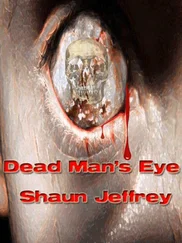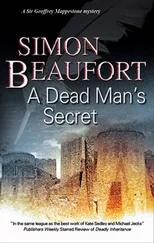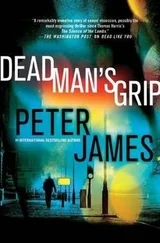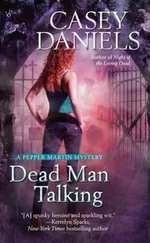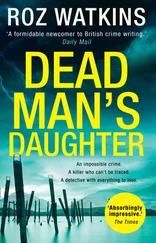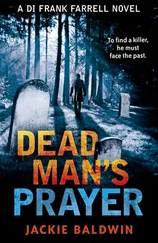Lavinia Fremont’s story came late in the manuscript, with great descriptions about their trip to England and the excitement of competing. Corinne described the attack outside the nightclub in horrific detail, and included a confession that rocked me back in my chair. I turned the last page over with relief and regret. I imagined the book would sell well. Draining the last bit of coffee from my mug, and feeling a caffeine-overdose headache coming on, I tapped my pen on the table and stared into space. My thoughts tumbled semiaimlessly. If I wrote a memoir in my seventies, would I have the same wealth of stories to tell that Corinne did? Would the people whose secrets Corinne laid bare in the book recover from the revelations? I thought about Mrs. Laughlin and her statement about greed and revenge being the only credible motives for murder. I’d thought all along that greed had twisted someone into a murderer. Maybe Turner or Randolph in order to inherit early, maybe Marco or Greta, who were greedy for acclaim and success and whose quests for those might be curtailed by Corinne’s brutal openness. Maybe even Mrs. Laughlin, greedy for autonomy and new adventures.
The more I thought about it, though, the more I became convinced that I was wrong. Greed hadn’t prompted Corinne’s murder.
Revenge had.
I thought about calling Maurice and talking it over with him, or even Tav or Danielle, just to run my suspicions past them. In the end, I called Detective Lissy. He was the one who would have to make the arrest, after all.
I caught him as he was leaving the office for the weekend, and he seemed strangely unwilling to make time for me, even when I told him I knew who had killed Corinne Blakely.
“So do I,” he said wearily. “Maurice Goldberg. We arrested him, remember?”
“It wasn’t Maurice. Look, I read the manuscript-”
“So did one of my officers. We talked to a couple of the folks mentioned in the book, including the Monks and Mr. Ingelido, and we’re satisfied they didn’t have anything to do with the murder.”
“They didn’t,” I agreed. “If you’d just hear me out-”
“Ms. Graysin, my grandson is pitching the first game in the Little League championships in forty-five minutes. The only thing I’m listening to this evening is the crack of the ball against the bat and the insults of parents abusing the ump.”
“Where?”
A hint of disbelief in his voice, Lissy told me.
An hour later, I joined him on the metal bleachers set up around a baseball diamond out near Vienna, Virginia, a D.C. suburb off of I-66. The sun beat down hotly, and I was grateful for the Baltimore Orioles cap I wore with my ponytail threaded through the back. The metal bleachers had absorbed enough heat to be uncomfortably warm against the backs of my thighs as I settled in beside Lissy. He looked casual and much more grandpa-ish in multipocketed khaki shorts and a faded blue golf shirt. Despite that, the shoelaces on his athletic shoes looked like they’d been ironed, and not a smudge of dirt sullied their whiteness. He slid me an exasperated look when I sat down and didn’t introduce me to the woman on his other side, whom I assumed was his daughter.
“You know Virginia has stalking laws, right?” he greeted me.
“I’m not stalking you!”
“Hmph.” He turned away to applaud as a team of adolescent boys in red-striped shirts took the field. “My grandson,” he said proudly, pointing to a burly lad throwing balls from the pitcher’s mound. He sounded more human than I’d ever heard him.
“Looks like he’s got an arm,” I said, parroting something I’d heard my dad say once about an Orioles pitching prospect.
I’d hoped that praising his grandson would soften Lissy up, but he merely said, “Give it to me.” He kept his eyes on the field while I talked, turning his head to face me only when I’d finished.
“You want me to arrest Lavinia Fremont?” he said incredulously. “The woman who benefited most from Corinne Blakely’s generosity, whose business was financed by Blakely?” He sounded as if he’d have had the ump throw me out of the game if it were possible.
“It was blood money,” I said. “In her memoir, Corinne confessed to being the one who orchestrated the attack that cost Lavinia her leg. Listen.” I’d brought the page with me, and I dug it out of my pocket and unfolded it. “It’s from the next-to-last chapter.”
I began to read. “‘This memoir would be neither complete nor honest without an accounting of what happened in London in 1964 when my best friend, Lavinia, was attacked outside a nightclub and subsequently lost part of her leg and the ability to dance.’” I looked up to gauge Lissy’s reaction, but his face was expressionless. “She goes on to explain about the dance competition and who all was there in London, and then says, ‘To my everlasting shame, I paid a man, a thug, to injure Corinne so she wouldn’t be able to compete. I told him where we’d be and even made sure we lingered at the nightclub until most of the patrons had left. I have regretted it from the moment he jumped out from behind that car. If I could have stopped it, I would have, but it was too late. I watched as he attacked Lavinia, watched as she crumpled to the sidewalk, and listened to her cries of pain. I could try to excuse what I did by talking about my passion for ballroom dance, and how badly I wanted to win the competition, but that would only make me more contemptible. I was so sick with grief and remorse that I could barely dance; indeed, I gave up dancing for several months after that. Everyone thought it was so I could be with Lavinia and help her, but it was because every turn, every chassé, reminded me of what I’d caused to be done. I swear, if I could have traded places with Lavinia on that operating table when the doctors removed her leg, I would have.’”
I lowered the page, affected as I had been on first reading it by the honesty-belated-and the pain that quivered in the words. “Even though Corinne meant only to put Lavinia out of commission for a week or so, she’s the reason her friend had to have her leg amputated. She felt so guilty about it that she helped Lavinia financially-”
“Helped her get on her feet,” Lissy said with mordant humor.
I winced and continued. “She put up the money to start Lavinia’s design studio and did what she could to funnel business Lavinia’s way. All because she felt genuinely awful about what she’d done.”
“Perhaps you’ll explain why Fremont waited until now to get her revenge?” Lissy asked, politely skeptical.
“Because she didn’t know Corinne was behind it!”
Cheers erupted around us, and the boys on the field headed for the dugout while a green-shirted team took up positions around the bases and in the outfield. The scent of hot dogs drifted our way, and I realized I was hungry, but not hungry enough to eat a hot dog.
“And since the book isn’t published, she found out about the scheme how?” His tone was not-so-politely skeptical now.
“Because Corinne told her.”
He looked at me from under his brows. “Ms. Graysin-”
“No, really. Corinne told each of the people mentioned in the book-well, maybe not all of them, but the major players-what she was writing about. Greta Monk knew. Marco Ingelido knew. Maurice knew. I’m sure her son and grandson knew something about what she was writing about them. She talked to everyone. She must have talked to Lavinia Fremont, but Lavinia didn’t mention that when we talked, which proves she had something to hide.” I finished triumphantly and leaned back, bumping into someone’s knees. “Sorry,” I muttered to the man behind me.
“In each of those cases, Ms. Graysin, Blakely was revealing something negative about another individual; maybe you’re right and she felt some obligation to warn them. With the Fremont tale, however, she was confessing to something herself, not outing someone else’s secret, so I don’t see that she’d have the same motivation to discuss it in advance.”
Читать дальше


